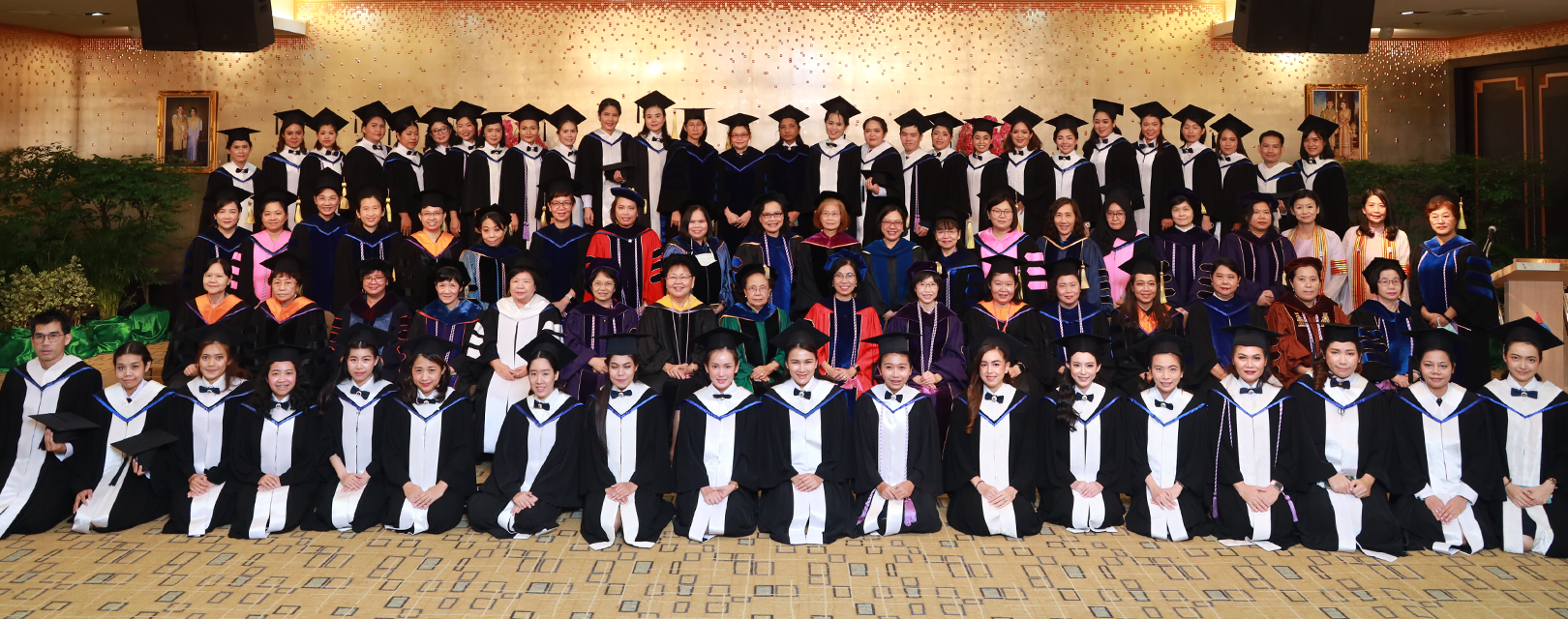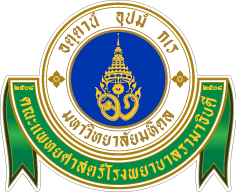
The program outcomes include:
- Program Completion rates
- Employment rates
- Publication
- Student achievement in Life-Long Learning after graduation
1) Program Completion Rates
Table of Program Completion rate of MNS (Psychiatric and Mental Health Nursing Program)
|
Cohort |
Total Admitted |
completed in 2 year |
completed in 3 year |
completed in 4 year |
% Current Completing |
|
2018 |
4 |
|
|
|
-/4 = 0% |
|
2019 |
5 |
|
|
|
-/5 = 0% |
|
2020 |
8 |
|
|
|
-/8 = 0% |
2) Employment Rates
Table of Aggregated Job Placement
|
Job Placement Rates – Aggregated for the Entire Program Master of Nursing Science (Psychiatric and Mental Health Nursing) |
||
|
Year |
Response Rate (Number responding/number graduating) |
Job Placement Rate (Number employed/number responding) |
|
2019 |
100% (5/5) |
100% (5/5) |
|
2020 |
100% (4/4) |
100% (4/4) |
|
2021 |
100% (4/4) |
100% (4/4) |
3) Publication
Table of Students Publication Year 2019 – 2023
|
Program Option |
2019 |
2020 |
2021 |
2022 |
2023 |
|
MNS (Psychiatric and Mental Health Nursing Program) |
- |
- |
4) Student achievement in Life-Long Learning after graduation
Forty-three of the alumni who graduated in the year 2014-2019 were surveyed about what extent they can contribute to serving the need of their agencies after graduation from the Master of Nursing Science Program, Ramathibodi School of Nursing. The response rate was 14.38% (43 persons from 299 persons). Most of the alumni stated that they can serve the needs of their agencies in terms of transferring knowledge into practice for better care of patients (65.11% 28 from 43 persons), and can help to develop research together with nursing teams (34.89% 15 from 43 persons). Alumni gave detailed data on their achievements (See Table 1).
Table 1 Graduates’ Achievement in Job Promotion, Higher Education, and Publications
|
Graduate Program |
Job promotion N (%) |
Higher education |
Numbers of publications/ Person |
Numbers of publications/ Cohort |
|
MNS (Psychiatric and Mental Health Nursing Program) (n = 2) |
2 (100) |
1 |
0-1 |
2 |
This detail of the assessment data is shown below.
- I can help my agency with full capability, and be accepted by the nurse administrators, and my colleagues (10 persons)
- Very responsive to practice because can perform as a nursing instructor at full capability.
- Apply the knowledge into practice. Share the experience of learning and practicing at Ramathibodi School of Nursing with the agency (3 persons)
- Able to develop oneself for advanced nursing training at the diploma level, which will help in the development of work quality, and take better care of patients in the hospital.
- Able to help with research in the agency (6 persons).
- Perform tasks to meet the needs of the institution to a large extent. Cover all five missions of the agency as follows: Teaching and Learning, Research, Academic Services, Arts and Culture, and Academic administration (3 persons).
- Greatly meet the needs of the agency (8 persons).
- Able to analyze the data in the area and bring the data to develop the project in the community.
|
The master’s nursing program is offered at RSON. |
|
|
The end program student learning outcomes of all program options are as follows: |
The role-specific outcomes |
|
1. Demonstrate professional and ethical behaviors consistent with practice, research, and academic work standards. 2. Utilize nursing knowledge, related disciplines, and evidence-based concepts to conduct research and provide holistic nursing care. 3. Have the ability to conduct research to improve the quality of nursing in the field of study and disseminate works in accordance with a standard. 4. Deliver patient-centered care that is safe, effective, and competent, while employing clinical decision-making skills in a culturally sensitive manner. 5. Create collaborative relationships with interdisciplinary team members, the patient, and the family to promote quality improvement initiatives for health outcomes. 6. Utilize innovative technology and information to communicate and facilitate decision-making to enhance nursing quality and risk management. |
The role- specific outcomes of MNS in Pediatric Nursing are as follows: 7. Develop the role-specific as a clinical nurse specialist with the following competencies: a) Develop comprehensive care management plans for individual pediatric patients with chronic and complex health problems b) Deliver health promotion and disease prevention to healthy children and provide direct patient care for children with acute, critical and chronic conditions c) Collaborate with multidisciplinary teams and families to develop comprehensive care plans for children d) Provide guidance and coaching children and their families to take control of their complex health needs e) Consult with a healthcare team and families for optimal child care f) Able to be a change agent by utilizing evidence-based knowledge to implement change that improve the quality of care provided to children g) Able to provide ethical reasoning and decision making h) Outcome management and evaluation |
